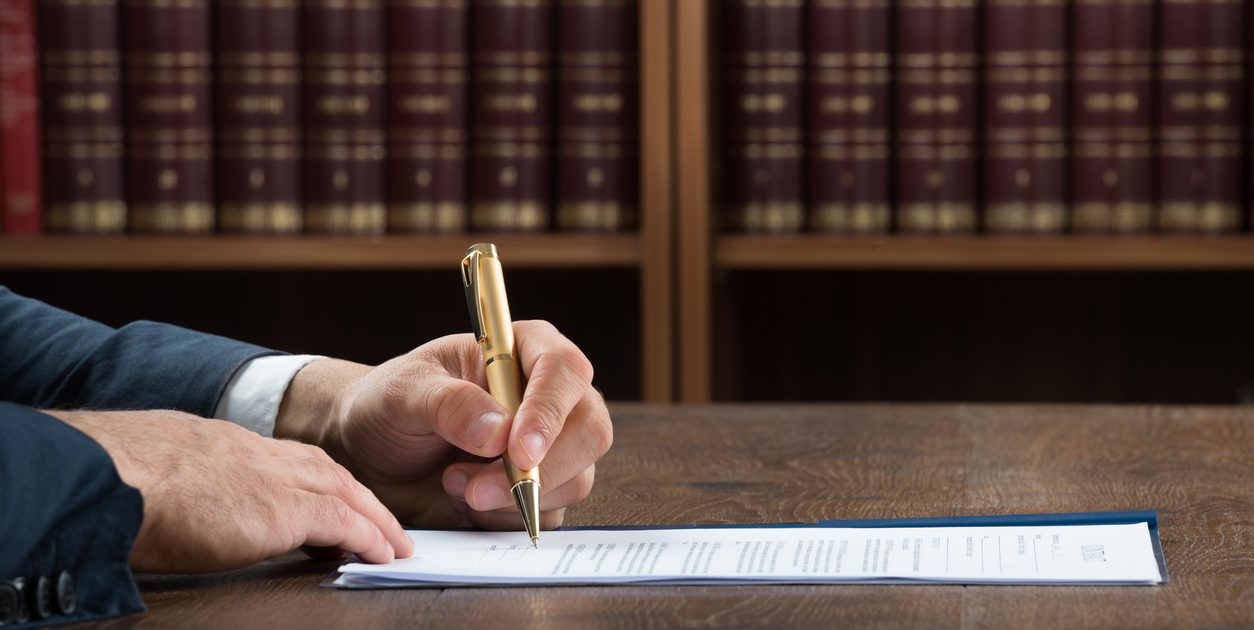Do You Need a Lawyer to Get a Power of Attorney?

If you or someone you know needs help making important decisions, you may find yourself in need of a power of attorney. This is a legal document that grants someone to make decisions on behalf of another person, often in terms of health care or finance management.
In this article, we’re taking a closer look at the question – Do you need a lawyer to get a power of attorney?
Do You Need a Lawyer to Get a Power of Attorney?
Are you seeking a power of attorney for a loved one? Complex legal requirements can make taking the first steps forward can feel daunting and stressful. This is especially true where there is a need for expediency due to illness, injury, or some other kind of special influence at play.
You do not technically require a lawyer to sign a legal POA between two or more parties. However, it is often in everyone’s best interest to have an estate planning attorney mediate and oversee its creation.
So, do you need a lawyer to get a power of attorney?
What Is a Power of Attorney?
A Power of Attorney (POA) is a legal agreement between two people that grants one individual the legal right to manage the financial, medical, and/or legal affairs of the other. It is most often utilized when there are concerns that an individual may become legally incapacitated at some point in the future (e.g., after a dementia diagnosis).
In a POA, the individual who represents is referred to as the agent, or sometimes, the attorney-in-fact. The person being represented is called the principal. These terms are important because they help outline the rights and responsibilities of each individual within the scope of the POA contract.
POAs fall into three unique categories, each addressing a slightly different set of rights and responsibilities.
Limited Power of Attorney (LPOA)
The agent can only make decisions or handle affairs as agreed upon by the principal at the time of the signing. For example, an accountant may sign an LPOA with a client to ensure the ability to handle financial transactions and affairs on a timely basis.
The principal generally decides which rights to include within the scope of an LPOA and whether or not there are any limitations on it. Using the previous example again, a principal (the client) may grant their agent (the accountant) the right to handle all matters relating to taxes, yet explicitly forbid them from handling decisions relating to bank accounts or investments.
Power of Attorney for Health (POAH)
The agent gains only the right to handle affairs directly related to the principal’s medical care. This often includes the right to sign a DNR, the right to agree to or deny a treatment, and/or the right to agree to organ donation after death, should the principal’s wishes be unknown. For example, a parent may sign a POAH with an adult child after a dementia diagnosis to ensure their needs are met in the future.
General Power of Attorney (GPOA)
The agent gains the right to handle all affairs for the principal except affairs relating to healthcare. As a general rule, this includes anything legal, medical, or life-impacting. For example, a parent may sign a GPOA with a child who suffers from severe mental illness that renders them occasionally incapacitated in the eyes of the law.
It is important to note that incapacitated individuals are not legally capable of signing a POA once they are legally incapaciated. The document must be signed before the individual loses the ability to handle their own affairs.
Limited, Durable, Or Springing
POAs can be either general, limited, durable, or springing:
- General POAs become effective immediately, but only remain effective until someone becomes incapacitated. For example, a military spouse might sign a general POA before being deployed to ensure a spouse can make decisions while they are overseas.
- Limited POAs are only effective in specific circumstances, such as within a set of dates or when a specific event occurs. For example, someone might sign a limited POA with an attorney that only remains effective during a divorce.
- Durable POAs become active at the moment of signing; they remain active even after the principal becomes incapacitated. For example, a parent with dementia might sign a durable POA before they become incapacitated.
- Springing POAs only become active at the moment of incapacitation. For example, a spouse might sign a springing POA with their partner that ensures the right for them to make healthcare decisions in the event of catastrophic illness or severe injury.
Can a Power of Attorney be Challenged?
Maybe. Generally, the principal always retains the right to revoke decision-making powers or even end the POA contract at any time, but an incapacitated individual often loses the right to make legal decisions like these. This can leave both the principal and their loved ones facing an impossible conundrum.
First, it is possible to challenge claims of incapacity in court. For example, someone who is being labeled incapable of making their own decisions due to mental illness might challenge those claims in court. Often, this is done by bringing in expert witnesses, by having the person testify, or even by showing proof of medical records that certify the person is fit and competent. If the courts agree, the principal would instantly regain the right to revoke the POA.
A third party does have the right to challenge a POA on behalf of an incapacitated individual if they believe the POA itself is somehow invalid. For example, one child may challenge a financial LPOA between a sibling and a parent because they believe the parent was incapacitared at the time of signing. Or, a spouse might challenge it because they believe the agent is engaging in financial abuse.
Challenging a POA can be extremely difficult. Evidence is often difficult to gather, especially if the principal is severely incapacitated. For this reason, it is almost always better to work closely with an attorney than to move forward alone.
How to Get Power of Attorney
In order to get power of attorney in California, you must follow a very specific legal process:
- Discuss the POA with the intended principal. Be sure they agree to the terms and genuinely desire that you become their POA. If necessary, change or clarify the terms until all parties are satisfied.
- Determine which form of POA is most suitable – limited, general, durable, or springing. Decide if you both want to include to exclude any specific decisions, such as the right to make financial transactions on the principal’s behalf.
- Have a lawyer mediate to ensure the rights of all individuals involved in the POA process are respected. This generally takes place in one or more meetings between both the agent, the principal, and the lawyer.
- Ask your attorney to draw up the POA document as per your agreed upon terms. Or, visit California Code, Probate Code – PROB § 4401 to print out your own copy of a standard form for use at home. If signing a medical POA, print out the California Office of the Attorney General’s Advanced Medical Directive form
- Fill out the document as clearly and specifically as you can. Pay careful attention to correctly naming the agent(s) and principal. If you include multiple agents, be sure to indicate whether they must work separately or jointly.
- To include a specific power as listed on each form, have both parties initial beside it on the left-hand side. Leave any powers you wish to exclude blank, and be sure to append more specific exclusions at the end. This should include both desired exclusions and legal exclusions (e.g., the inability for an agent of any kind to change a principal’s will).
- Sign and date the document, paying close attention to the date of execution. This is the date on which you want the POA to become officially active. Note that POAs must be signed by the principal and agent(s) either in the presence of witnesses or in front of a notary public.
Once the signing is complete, your POA is considered legal and complete. If the date of initiation was the same as the date of the signing, your powers become effective immediately. Otherwise, rights are granted on the aforementioned date.
How to Find an Estate Planning Attorney
One of the best ways to find an estate planning attorney is to reach out to a legal referral service. These telephone-based organizations specialize in helping California residents connect with reliable, affordable, and trustworthy legal services across every area of law. This can be immensely helpful in a stressful situation.
As for who you are connected with, you have options. Ask the representative you speak with for a list of contacts best suited to your needs, or have the referral service schedule you a consultation with your best match. You retain full control over the entire process. Plus, referral is cost-free.
Conclusion
So, do you need a lawyer to get a power of attorney?
While you don’t need to have an attorney, it’s often in your best interest to have an estate planning attorney mediate and oversee its creation. There are several ways to find an estate planning attorney near you, but going through an attorney referral service is often the most efficient.
If you would like to schedule a free consultation with an estate attorney to discuss creating a power of attorney, consider contacting your local attorney referral service.
Are you in search for a certified attorney to represent you?
Let us help you find one today!


